Takeaways from #Story25: Day 2
Check out the main highlights from the second day of our anniversary edition.
Day 2 of #Story25 is hard to sum up, let alone break down into takeaways and bullet points. It was a day of personal stories, and powerful lessons in listening—with our hearts and minds, with intention, without distractions from notes or phones. Still, here’s our best attempt at summarizing a few insights.
Lina Vdovîi & Radu Ciorniciuc
We wrapped up our first conference day watching TATA, a documentary by filmmakers Lina Vdovîi and Radu Ciorniciuc detailing the abuse that Lina’s father experienced as a migrant worker in Italy, but also the abuse he himself inflicted upon his family back in Moldova. On day two, Lina & Radu walked us through how TATA came to be, but also through the power of speaking your truth, healing, collaboration, and empathy.
I always focused on the marginalized ones, the discriminated against. Stories about ppl who are mostly invisible. I told these stories because I believed that if we want to point out the evil, we need to talk about victims. Their experience was the only truth worth pursuing. But what happens when the evil you're trying to confront lives within your own family?
Violence doesn’t appear out of nowhere—it is taught, tolerated and, too often, it is celebrated. The iron fist was a norm.
I spent years encouraging people to open up, to be vulnerable. I was using storytelling as a tool for justice, for healing. It took years for me to realize that hiding would not heal.
I had to speak my own truth. It was terrifying, but also liberating. When we dare to speak our truth, it allows others to do the same.
I believe that if violence can be learned, it can also be unlearned. And if trauma can be passed from one generation to another, then healing can be passed too.
I grew up without male guidance or a moral backbone. I craved for something deeper, real—ever since I left home at 14, I felt an emptiness that nothing seemed to fill. I wasn’t alone and, even though this was 20 years ago, it’s happening around us nowadays. (…) There’s millions of boys growing up lost, angry and desperate for something real.
When you grow up feeling lost and rejected, anger is easier than love.
I started with rage—at the exploitation, at corruption, at the system—and we [at Casa Jurnalistului, The House of Journalists] made noise with our stories. But despite all the attention, nothing really changed. That’s when I realized rage alone wasn't enough. I needed to dig deeper. The urgency of the work had stripped away the humanity of the process.
I was lucky, I found something different, and it wasn’t power—it was empathy.
Building a bridge to someone’s humanity is the hardest storytelling.
The personal is always political, and empathy is the bridge between the two.
Rachel Louise Snyder
Journalist and writer Rachel Louise Snyder shared how traveling helped her find out who she was, and what these travels taught her about the power of language.
I learned that two weeks after the Twin Towers fell in 2001, kids had to go back to school. “What are we gonna do?”, the teachers asked themselves, and decided they were going to have the kids draw, and paint, and write their memories from that time. I think that’s the power of art, and that’s the power of storytelling. When disaster happens, all we have is art and stories. The most important thing is the stories we tell ourselves.
What I was learning by travelling was how language could take many shapes. I could see how it could create threat in some places and spawn beauty in other places; how language could get you killed or get you rescued depending on the simple accident of your geography.
In my life, the life I’ve carved out, I use language because its the most powerful tool I can access for change. I believe in the power of language the way my father once believed in the Evangelical God. The way authoritarian regimes fear its power so profoundly they outlaw opposition, which is to say they outlaw truth itself.
Truth is only threatening when you’ve built your life on lies. I’ve always believed that language, like truth, no matter how oppressed and repressed, can still connect and save us.
Raluca Anton
Psychotherapist Raluca Anton challenged our assumption that we need to focus on ourselves first in order to be able to have healthy relationships, and instead encouraged us to explore the space between—to acknowledge that we are born, grow, and heal in relationships, and that the self should not be seen in isolation from them.
We cannot survive if we are not together. Connection means existence. We know we exist because we have other people around us. But studies say we live in an epidemic of loneliness, because we don't feel safe with each other, because we lost this connection with each other.
The individual perspective says our problems lie within ourselves. But they also lie in the space between us. So it's not enough to address what's happening inside, we also have to address what's happening between us.
It's not about choosing between ourselves and the others, but about having the ability to navigate the inner world and the space between.
The most important prerequisite of safety is belonging. When we don’t feel like we belong, fear appears, because we don’t know if there will be someone with us in our pain.
Belonging impacts the cognitive system, because our brain works in systems. This belonging lies within is, we just need to activate it. It also impacts our physical self and our lifespan. We live longer and happier if we invest in our relationships.
Kate Murphy (in conversation with Jennifer Brandel)
Journalist and author Kate Murphy shared insights on the lost art of listening, how we can become better at it, and what we stand to gain when we take our time to focus on other people’s stories instead of our own.
Good-feel chemicals get released when you listen, so listening is a drug. And it is important.
You already know about you, but you don’t know other people’s story.
It doesn’t mean you are a bad person if you aren’t a good listener. There is just a lot getting in our way. Socially, culturally, technologically. People want to be liked, and they want to say the right thing, which is why, instead of listening, they always worry about what they’re going to say next. But by focusing on that, they miss what the other person is truly saying.
The more you listen, the better you get at it.
The greatest gift you can give to another person is to listen to them. And I can tell you this: nobody is boring if you ask the right question.
Rhiannon White
Drawing from own story growing up on a council estate in Wales and being made to feel like she wasn’t enough, theater-maker Rhiannon White encouraged us to see value in being “common”, and start doing things ourselves.
In the UK, common is a slur word for people who are poor, and we want to challenge that. We believe in the wealth of being common, of being poor.
The first time I ever felt different because of my social class was in the theatre—I was the only person from a council estate there. My dad didn’t pick me up. I got two buses to get there. In my short life, I had already experienced so much and I felt so old. I didn’t understand why theatre, the thing that I loved, didn’t feel like it loved me.
Common Wealth we started in a DIY way—we would take this massive buildings and create these crazy worlds for the audience. We had no money and we forged our way in. We decided on making theatre that spoke beyond borders.
This year, we’re publishing our first book, which is insane. In the book, we have written a manifesto. [Part of it is:] Don’t wait. Do it yourself.
Arkady Martine
SciFi writer Arkady Martine introduced us to storyworlds—a term that emerges from the discipline of cognitive narratology to talk about an internal mental model of how the universe works—, and what we can learn from the collision, or space of connection, between apparently incompatible universes.
Science fiction is the language I speak in the dark. It is my favorite place to interrogate philosophical questions.
What narratology does is give us tools to think about not only the patterns of a narrative, but how narratives are part of how humans understand what happens to them in their daily lives.
A storyworld is a co-created world between the author and the audience. Access to the storyworld takes place in the mind of the audience.
Use storyworld thinking to imagine the connections between your storyworld and the others’.
Shirish Kulkarni
Community organizer and journalist Shirish Kulkarni showed how news nowadays fail to accurately represent the world, capturing it in its entire complexity and uncertainty. So what would the world look like if we could reinvent informational storytelling?
Where does racism and mysoginy come from? It’s the systemic failure of the stories our societies tell us. And where are the key storytellers? Very often, the organizations of journalism.
Journalism has routinely abdicated the responsibility it has not only in telling stories, but also in shaping them. It hides behind objectivity and pretends it’s just reporting on events, not creating them. The reality is that journalism is an intrinsec part of those systems. We can't just talk about holding power to account if we don’t acknowledge our own power and account for it.
We need to dismantle, reimagine and rebuild the structures that have excluded so many people for so long. We need to ask: who gets to tell the stories, who decides what stories get told, whose voices are heard and whose are silenced?
What would we invent if journalism didn't exist? It would start with care: for ourselves and for others. It would focus on generosity: the stories would be trauma informed rather than traumatic, they would focus on healing rather than pain. It would work towards justice. And we’d finally be able to hold complexity.
This is our journalism. It's for all of us. Let's go build it together.
Chris Jones
Many tears were shed as journalist and writer Chris Jones took the stage to recount how Burnley, the Premier League football team his grandfather and mother supported, became his solace during a devastating year—and later, a way to honor his mother's memory after her passing.
I was not a fan of anything for most of my life. I thought of soccer as opera. Detached, like you would look at a painting.
In the summer of 2016 I watched my son celebrate a Liverpool win, and I thought: could this be where my love goes? Soccer? (…) I put the Burnley scarf on, and suddenly I had some sort of clarity. Burnley didn't need to love me back. They could just be there for me to love them.
Happiness can disappear in an instant. And it comes back in increments. You can't win it back all at once.
Hope is not a feeling. Hope is a choice. Your heart can lead your mind, of course, but your mind has power over your heart. In taking me to see Burnley when I was a kid, my granddad gave me a gift I took 40 years to open. He was teaching me how to remember.
Ask the people you love how they do a thing that makes you think of them. Maybe it’s a soup, maybe it’s how they build a fire, maybe it’s how they tell a story. Trust me, one day you will want to know these things.
Jennifer Brandel & Mara Zepeda
Longtime friends and collaborators Jenn and Mara wove together a decade of insights on human connection, creativity, and relationship-building, showing us how we can shape the world around us by working together. To wrap it all up, they also turned our conference space into the ultimate disco.
We asked you about energy, about when was the last time you felt truly alive.
ChatGPT identified some patterns: Nature as a catalyst, deep human connection, transcendence and limitlessness.
We feel like time happens to us, like it is something we are beholden to. But there is also a definition by Judy Dow that says “Time is when everyone is together, and we are ready”.
There are four power pattners: resonance, time and presence, curiosity, energy and environment.
You are not just subject to time and your environment, you can do something to change them.
Curiosity, attention, is the rarest and purest form of generosity. Taken to its highest degree, it is the same thing as prayer.
We can make our own storyworld and break some norms there.
Photos by Mihai Ciobanu and Tudor Pană.






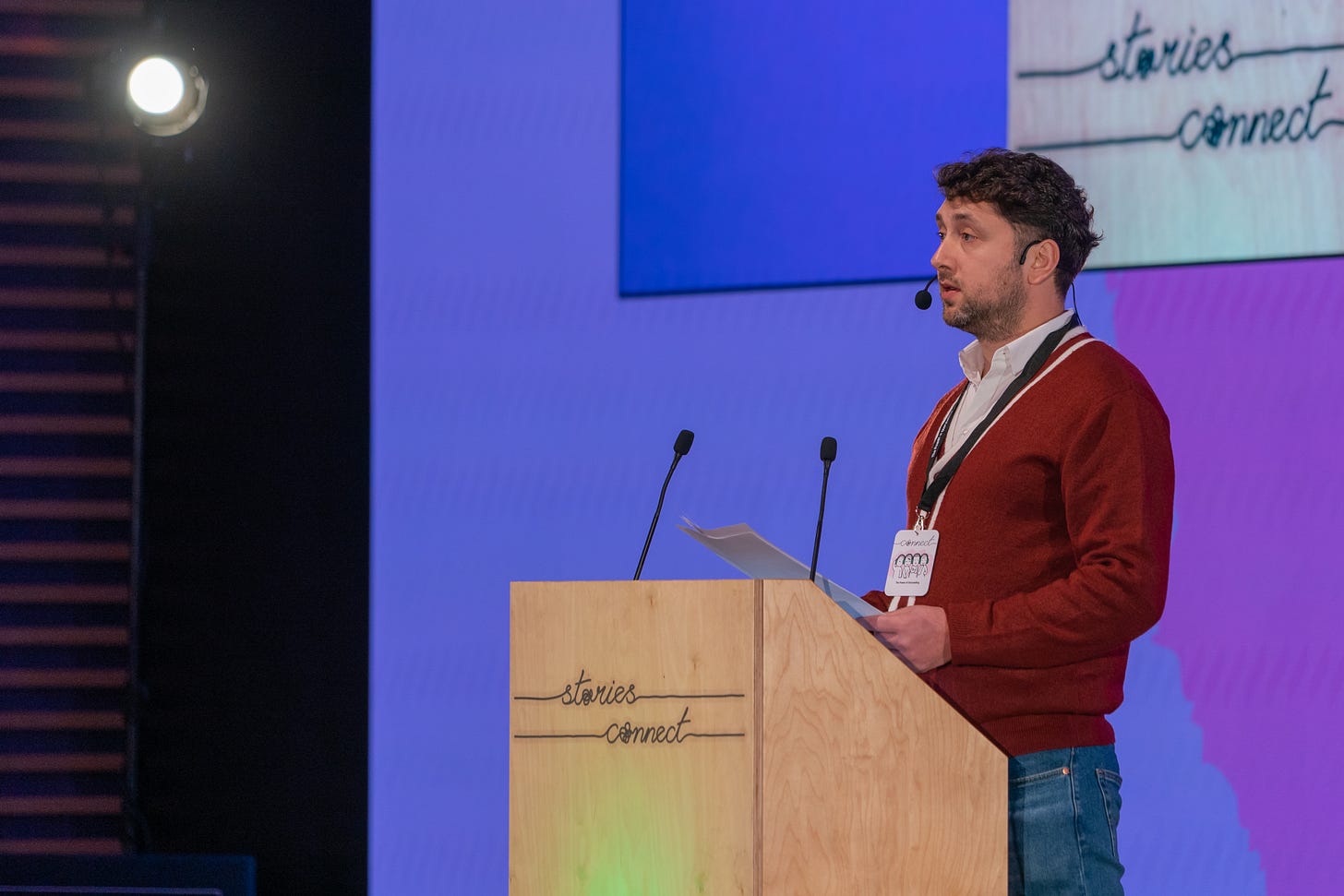

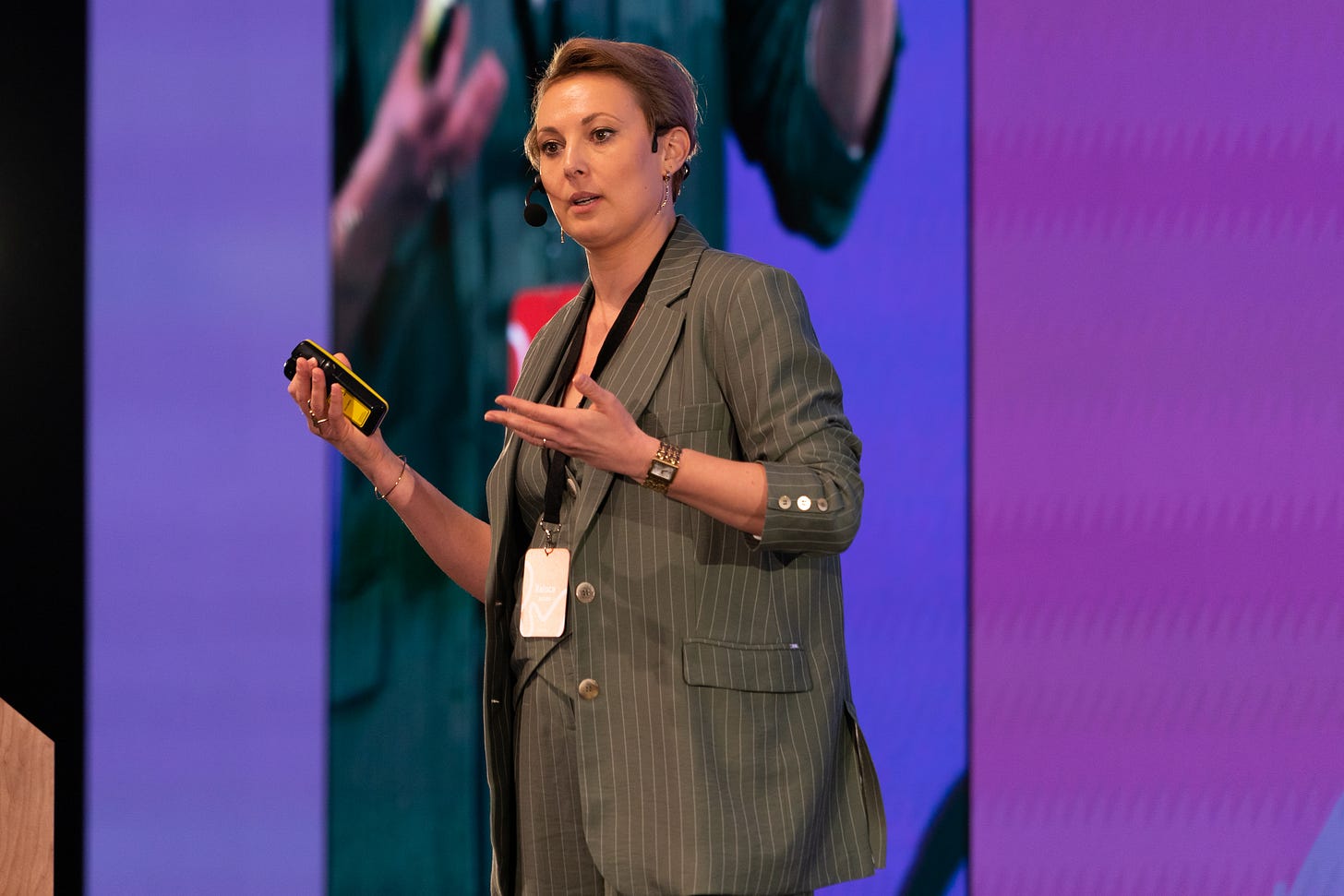
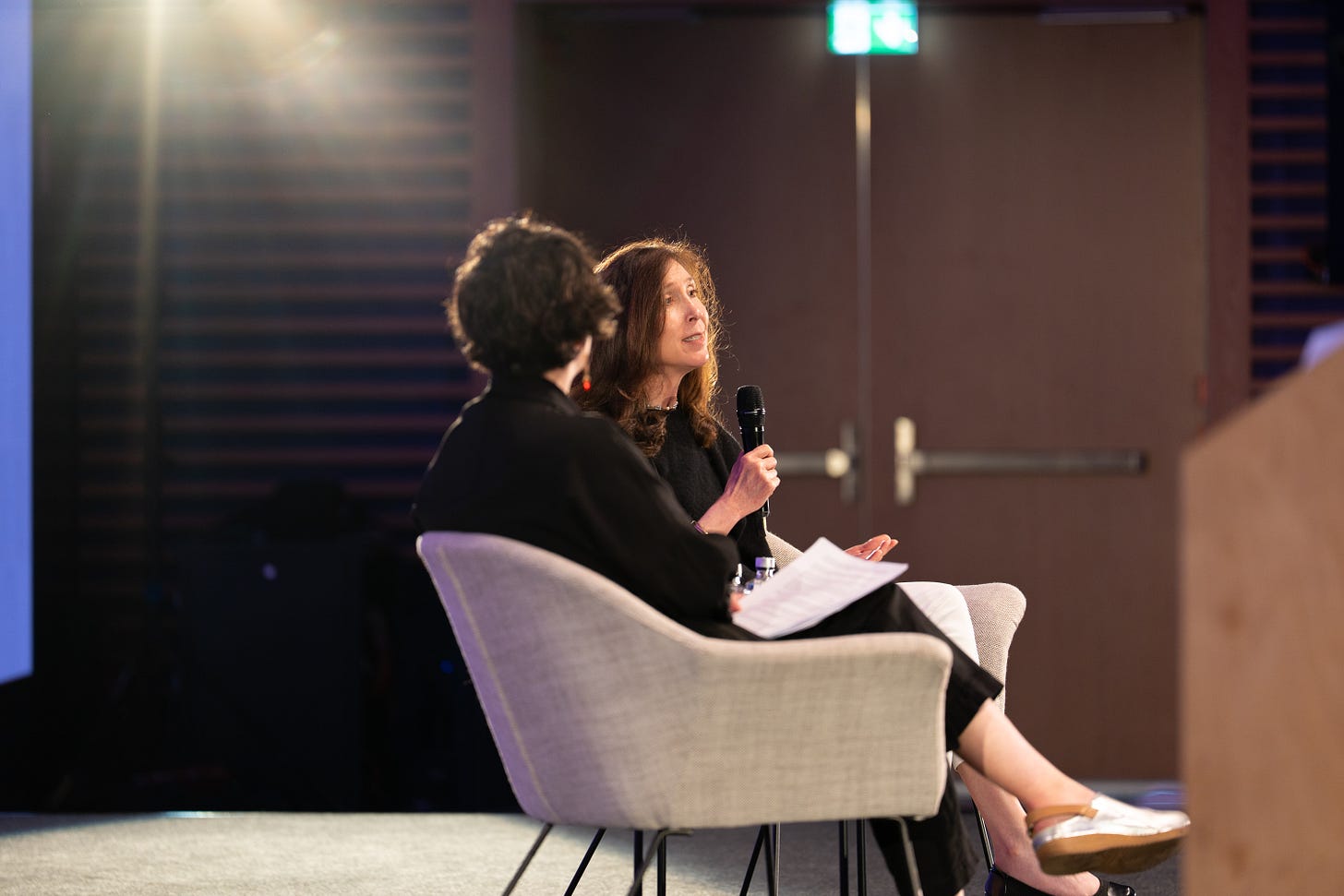



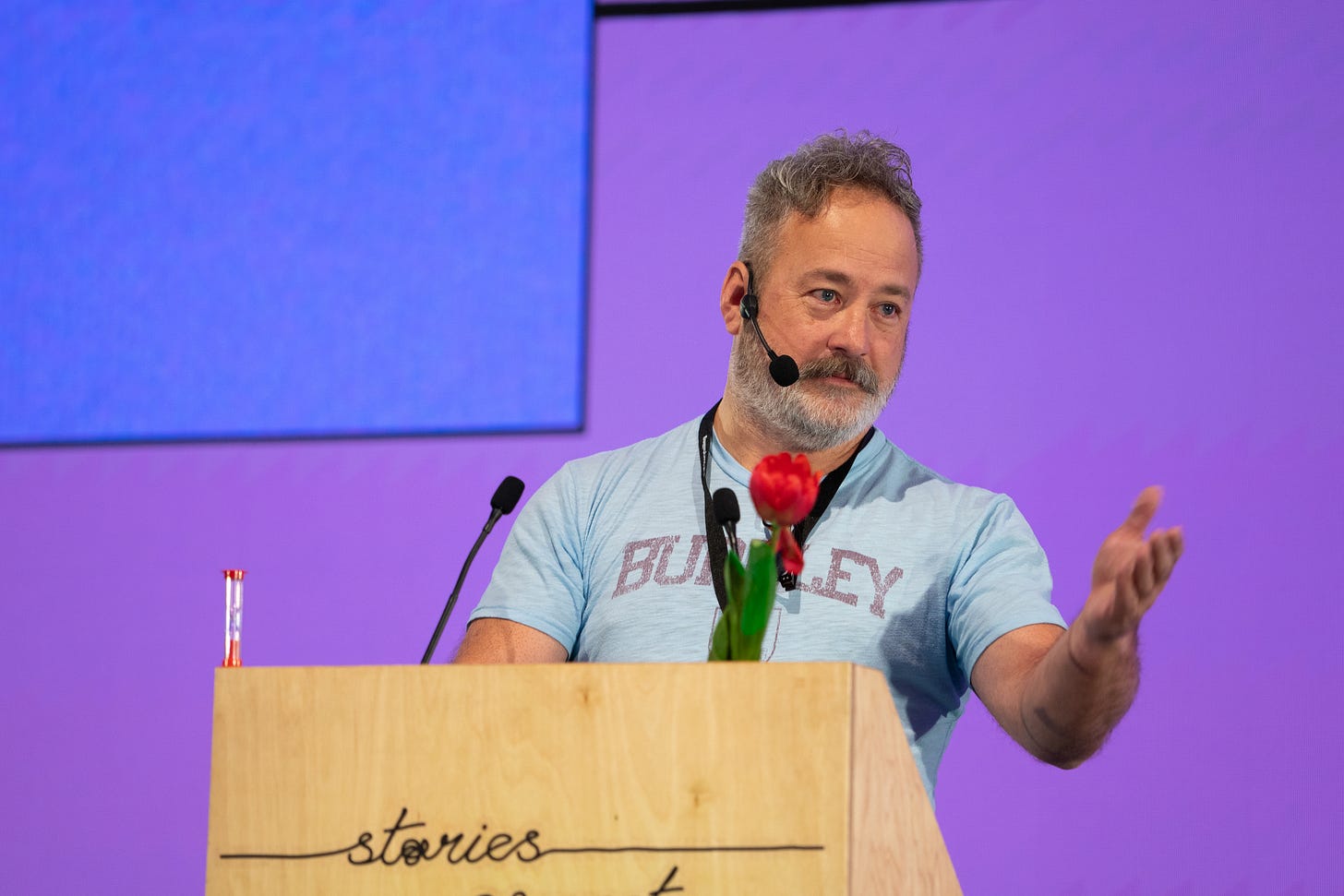
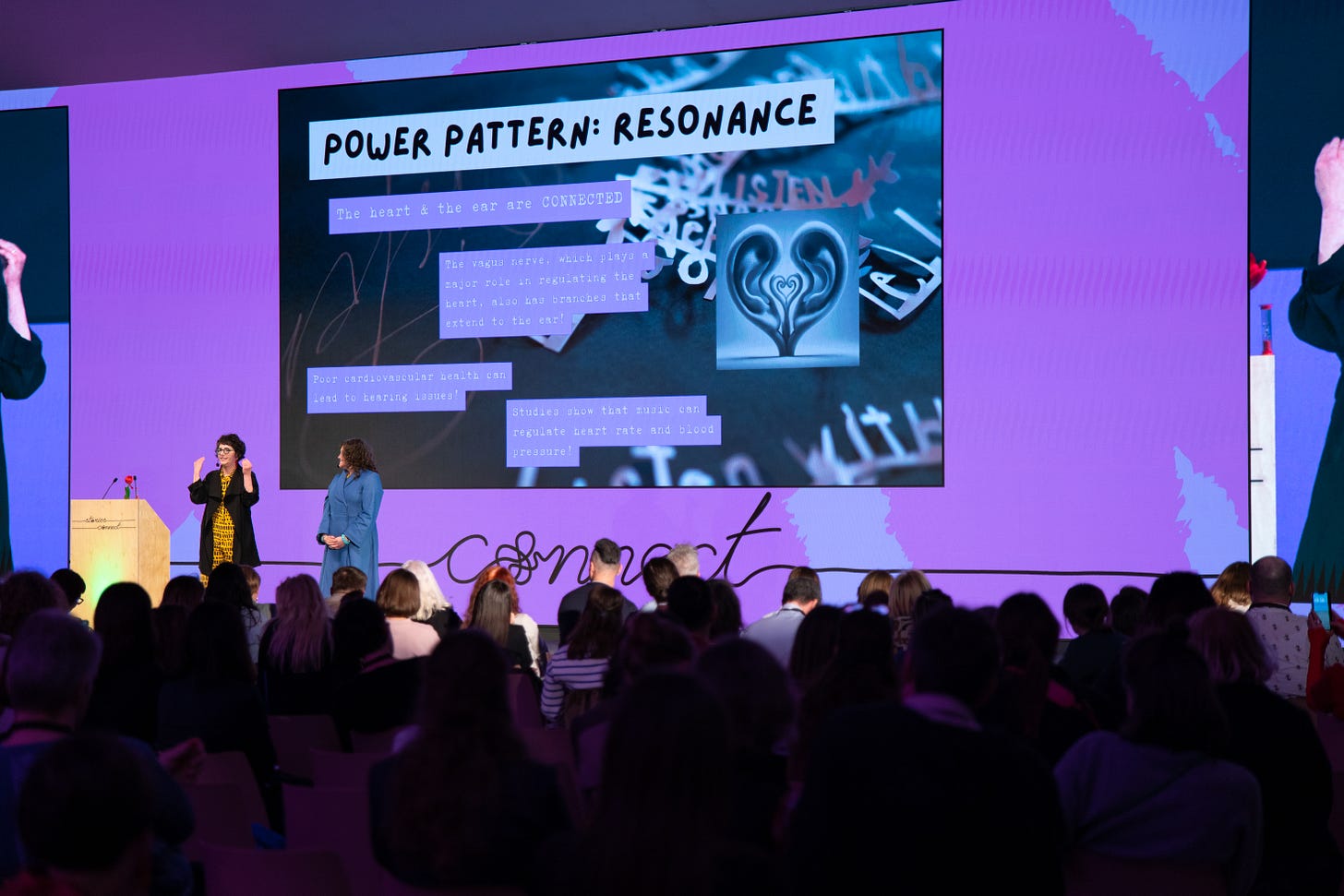
Thanks for the takeaways, it's really useful! :)